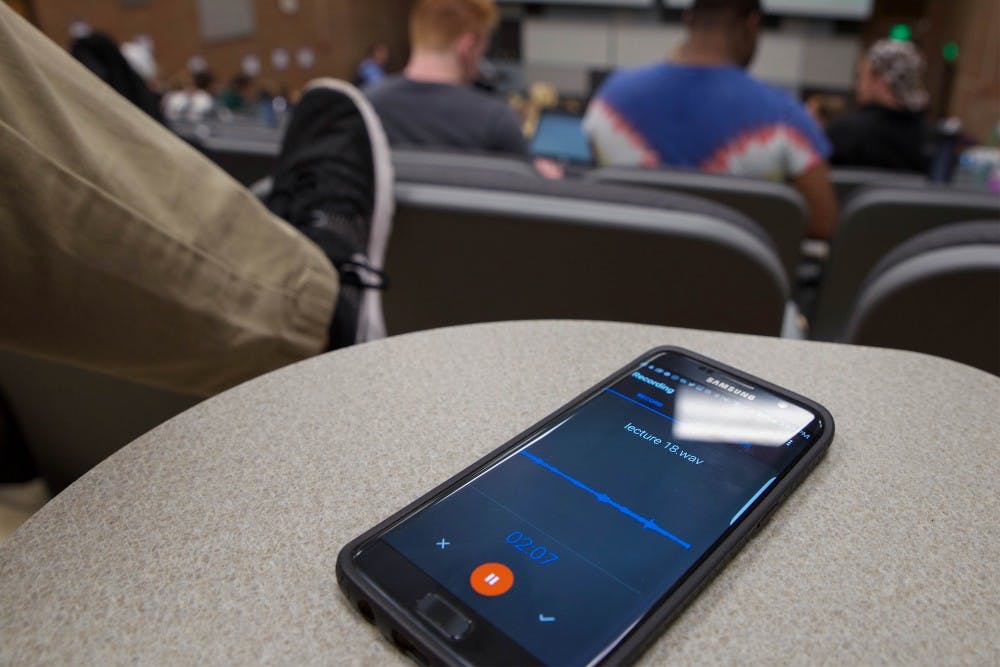Ohio University's classroom privacy policy could see potential updates, which can have affects when it comes to recording lectures.
Faculty Senate Chair Joe McLaughlin introduced Ohio University’s classroom privacy policy as a potential subject for revision at the Oct. 10 Faculty Senate meeting.
The policy now states that “faculty are entitled to classroom privacy, academic freedom, and professional courtesy,” according to the Faculty Handbook, meaning that anything recorded during instruction must be approved by the instructor, and all students have to be made aware of surveillance.
“(The Classroom Privacy policy) does predate the accommodation issue. … In the last five to ten years we’ve been trying really hard to comply with the law because it’s the right thing to do, to try to accommodate students who have disabilities and need some extra help that technology can assist with,” McLaughlin said.
All installation of cameras around campus were initiated by the Ohio University Police Department as part of Video Surveillance Systems policy.
“Chief (Andrew) Powers told me that they are working on revising that policy,” McLaughlin said. “They either need two policies, one for academic spaces and one for non-academic spaces, or if they’re going to continue to have it consolidated they need to have more academic people on the group that’s making the decisions.”
The last five to 10 years have also seen an increase in recording devices have made it easier for students and teachers to be surveyed, Paul Patton, an anthropology professor, said.
Since the introduction of the Americans with Disabilities Act, Student Accessibility Services has adjusted accommodations for students.
“There are two parts that go into determining whether an accommodation is reasonable under the law. (The) first part would be looking at the student’s disability and the second part is (that) an accommodation would not be considered reasonable if it is a fundamental alteration (to the course),” Carey Busch, assistant dean of Student Accessibility Services said.
There are some students that would have recorded a lecture if it was the only means of accommodations, Busch said.
“Our office actively coordinates finding the notetaker,” Busch said. “Prior to that it was really voluntary, the faculty were asked to make announcements and find someone.”
If a student with a disability has signed a statement saying the recording materials are for their own personal use for the coursework, it is not a violation of intellectual property, McLaughlin said.
“There are few classes where we would say that recording really, truly changes the nature of the conversations,” Busch said. “There has been one or maybe two courses where we decided to explore something alternate to it because folks were really being asked to share their thoughts and views on really difficult things like race and gender.”
When the policy was first written at least 20 years ago, most of the instruction at the university was in a traditional classroom setting, but OU has since adopted different kinds of laboratories, studios and the structure of classrooms, McLaughlin said.
“If we were going to revise this, I would advise the people working on it to think of a term like ‘instructional spaces,’ ” McLaughlin said.






